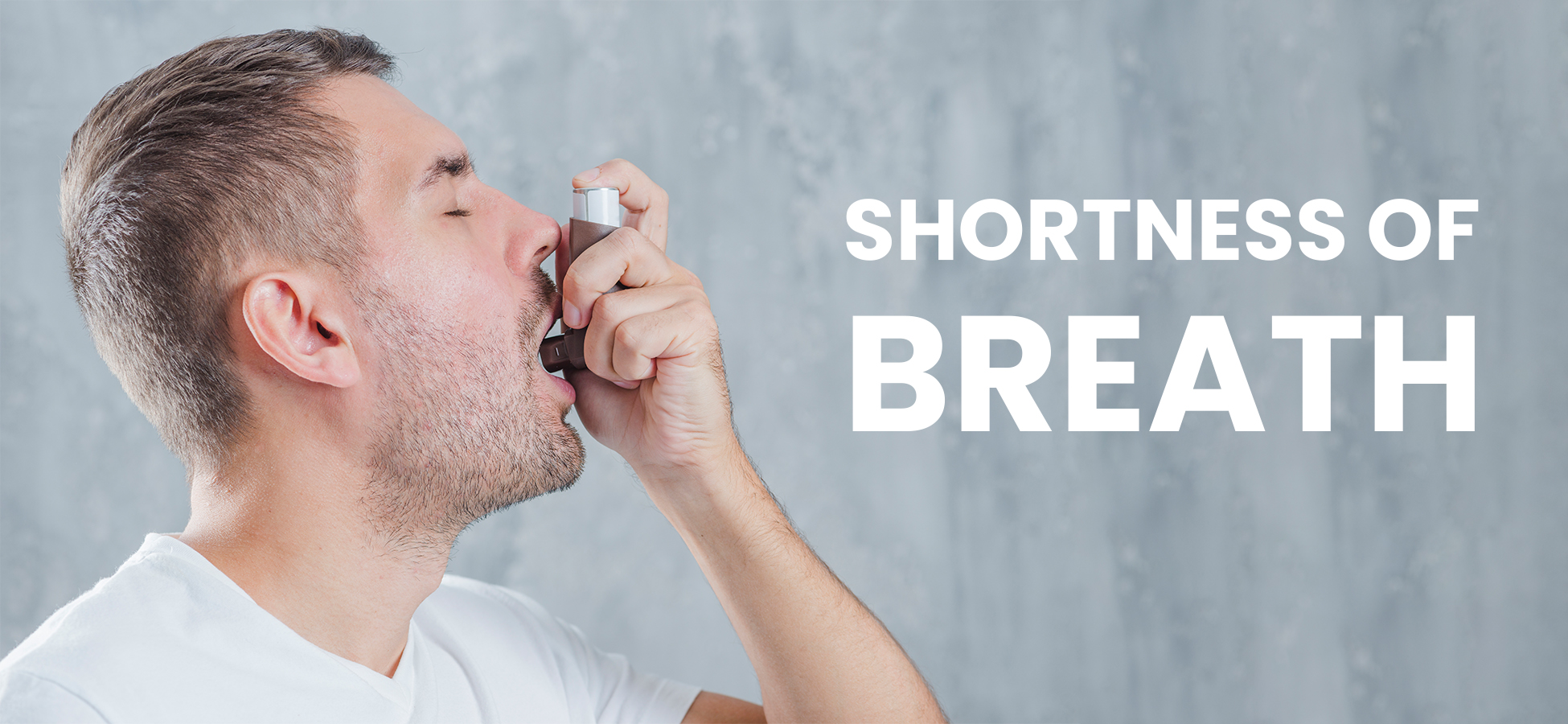
Difficult or labored breathing can be termed as shortness of breath. It is also referred to as Dyspnea. When a person undergoes shortness of breath, it is because the lungs do not get the right amount of air. The condition, most of the time, is the symptom of certain diseases. Problems like heart or lung disorders can affect your breathing adversely. Therefore, if you are facing difficulty in breathing, here’s all that you need to know.
Many a time people get confused if they are facing breathing difficulty or not. Therefore, before stepping up on the causes or treatment of the disease, it is important to check the symptoms and observe yourself (not for a long time, though).
What are the Symptoms of Breathing Problem?
In addition to feeling discomfort or shortness of breath, there are other symptoms that you may observe or lookout, like:
-
Rapid or fast breathing.
-
Increased heart rate.
-
Gasping.
-
Anxiety or panic.
-
Noisy breathing.
-
Wheezing.
-
Chest pain.
-
Neck pain.
-
Fatigue and dizziness.
-
Pale skin, especially around the mouth.
When you are short of the required breath, it becomes difficult and uncomfortable for you. Sometimes mild breathing problems are a consequence of vigorous exercise or a stuffy nose. However, this is not the case every time. You might even want to know what other conditions can lead to dyspnea in general.
What Causes Breathing Problem?
Many conditions can make you uncomfortable due to shortness of breath, including:
-
Lung-related diseases like Asthma, Emphysema, and Pneumonia.
-
Diseases concerning any part of your airway system.
-
Heart diseases, due to inefficiency to pump enough blood.
-
Anxiety, stress, and panic attacks.
-
Allergies.
-
Smoking.
-
Anemia or shortage of iron.
-
Cold, cough, and flu.
When should I seek Doctor’s help?
Shortness of breath can, sometimes, be a sign of more severe health issues. This is why it is vital to look out for other symptoms too. If you experience difficulty in breathing along with other above-mentioned or other symptoms (moderate to severe) frequently, seek emergency medical help.
Besides those symptoms, you must book a doctor’s appointment or reach out to a medical center if:
-
You face a breathing problem frequently.
-
It doesn’t improve when you take a rest.
-
It occurs while eating or swallowing.
-
You have a fever with chills.
-
You cough up blood.
-
Your heart rate increases.
-
You feel uncomfortable or drowsy.
Also seek medical attention if you are already suffering from any heart or lung disease. Call the emergency helpline of the nearest hospital right away.
How is the Breathing Problem Diagnosed?
The first thing your doctor will do during the diagnosis is asking the following questions. Through these, he will then look out for other procedures.
-
When was the first time you experienced difficulty in breathing?
-
What other symptoms do you notice during dyspnea?
-
Is there any specific time when you feel uncomfortable or short of breath?
-
What medicines are you administering?
-
Do you have a history of smoking?
After knowing your medical history, the doctor will undertake a physical exam including,
-
Monitoring your breathing pattern.
-
Listening to your heart and lungs.
-
Looking for swelling.
-
Checking fluid retention.
In addition, your doctor may also perform blood tests if you are suspected of heart disease. He may also recommend an electrocardiogram to check the possibility of heart or lung disease. Chest X-rays are also relevant and widely used to diagnose pneumonia and other related conditions. Once the main cause of the breathing problem is diagnosed, the doctor will advise necessary medications or therapies.
Home Remedies for Breathing Problem
Although your doctor will prescribe certain drugs and therapies once the diagnosis is done, it is important to take up healthy activities for a fast recovery. The following are some of the home remedies for Breathing problems:
Yoga
Yoga can significantly improve the quality of life since it increases lung function, relieves stress, and helps your body function well.
Pursed Lip Breathing
Pursed lip breathing is inhaling by puckering the lips and exhaling slowly through them. This technique makes your breath intentional and slower.
Prescribed Medications
After knowing the real cause of your breathing problem, your doctor may prescribe you certain medications or inhalers to relieve shortness of breath.
Probiotics
Probiotics keep your body healthy overall since they are made from good bacteria. Foods that contain probiotics are Yogurt, Sauerkraut, Miso Soup, Sourdough Bread, etc.
Most of the time, home remedies along with prescribed therapies work for patients with breathing problems. However, such recommendations should not be used as a substitute for a doctor’s advice.
How can I Prevent Shortness of Breath?
In case you are worried about facing breathing problems in the future, here’s what you can do! The below-mentioned tips can be used to prevent shortness of breath and related conditions:
-
Quit smoking, since it is the most relevant cause of breathing difficulties in most people.
-
Reduce your exposure to pollutants, harmful gases that come from factories, and on-road pollution.
-
Be active, because inactivity decreases the capacity of your lungs.
-
Manage your weight, as obesity is the cause of many heart and lung diseases.
-
Stay hydrated, so that your lungs could cleanse themselves periodically.
Besides all that you have learned about Breathing Problems from this article, it is necessary to seek your doctor’s help if such a situation arises.


